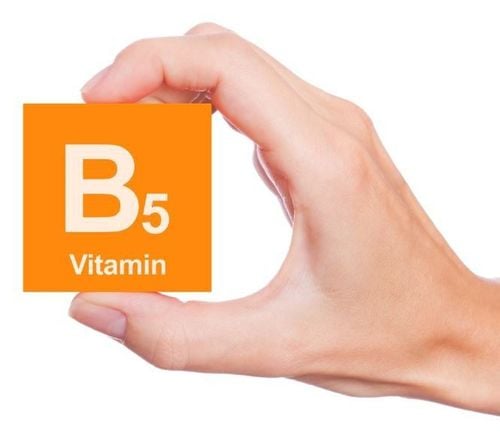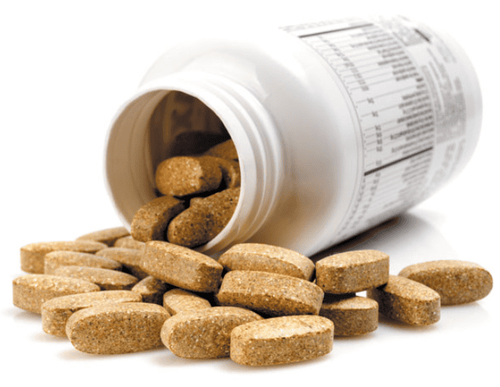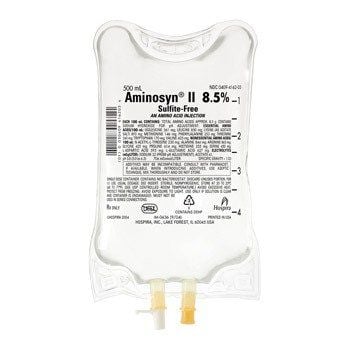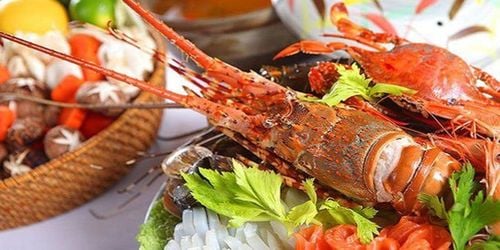This is an automatically translated article.
Beans, fish, eggs, meat or shellfish are all essential sources of protein for a healthy and balanced diet. Protein is commonly found in plants and animals, where each food source provides unique health benefits.1. Why should we supplement protein sources?
Beans, fish, eggs, meat and other proteins are all indispensable food sources in every person's daily diet. However, few people know exactly what this food group brings to the overall health.Here are some of the great benefits you need to know about this food group, including:
This is a really important part of a healthy and balanced diet for everyone, because These foods are all excellent sources of protein. At the same time, they also contain a lot of vitamins and minerals needed by the body. Beans are a nutritious food, the price is very reasonable for people's pocket. It is high in fiber, but naturally lower in fat than animal protein sources. Every day, you can eat a serving of beans to provide the body with fiber. Fish, especially fatty fish, are also great for heart health as they provide an incredibly nutritious source of omega-3 fatty acids. You should eat fish at least once a week to reduce your risk of stroke or heart attack - the two leading causes of death in the world. People who consume a lot of red and processed meat (over 90g per day), should limit their intake and reduce their average intake to no more than 70g per day. In addition, these foods also provide a lot of essential nutrients as follows:
Protein: helps normal muscle growth and maintenance, while improving bone health. Iron: commonly found in red meat, contributes to the formation of red blood cells and helps transport oxygen throughout the body. Zinc: also found in meat, helps maintain healthy skin, hair, nails, eyesight and helps the immune system stay healthy. Vitamin B12: found in meat and fish. It plays an important role in maintaining healthy red blood cells and helps stabilize other nerve functions. Vitamin D: abundant in oily fish; Ensures healthy teeth, bones and muscles. Omega-3 fatty acids: also found in oily fish, help maintain a normal and healthy heart.
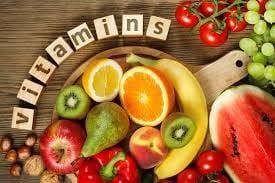
Vitamin D có nhiều trong cá nhiều dầu; đảm bảo cho răng, xương và cơ khỏe mạnh
2. What protein sources should you choose?
In fact, about 20% of the human body is made up of protein sources. However, protein cannot be stored in the body, so we need to include different sources of protein in our daily diet.Protein is divided into 2 main sources, including animal protein and vegetable protein. Each protein source offers different nutritional benefits. Here are good sources of protein that you should add to your daily diet:
Beans and other legumes: including kidney beans, lentils, chickpeas, peas, baked beans, avocado beans, apricot beans, soybeans, flageolet beans. White fish (fresh, frozen or canned): including cod, haddock, pollock, pomfret and tuna. Oily fish (fresh, frozen or canned): including salmon, sardines, mackerel, whitefish and trout. Shellfish (fresh, frozen or canned): including shrimp, scallops, oysters, mussels, crabs, and squid. Poultry: including chicken, turkey, pork, beef, duck, lamb, goose, bacon, hot dogs, and burgers. Eggs and milk. Nuts.
2.1. Health benefits of beans and other legumes
Legumes, including peas, lentils, baked beans, butter beans, apricot beans, soybeans, and flageolet beans. They're all very healthy plant-based sources of protein, so try to incorporate more of these foods into your diet.In addition, beans can also be a good alternative to meat because they are not only very low in natural fat but also provide a large amount of protein, fiber, other vitamins and minerals.
As a good source of protein, beans can be a great substitute for those who don't eat meat, fish or dairy products. When buying canned beans at the store, choose ones that are low in salt and sugar.

Đậu không chỉ chứa rất ít chất béo tự nhiên mà còn cung cấp một lượng lớn protein
2.2. Health benefits of fish and shellfish
Fish and shellfish are both good sources of many vitamins and minerals important for health. In particular, oily fish is considered a great natural source of vitamin D, and is also rich in long-chain omega-3 fatty acids, which may help prevent heart disease.For healthier fish options, you should try grilled, steamed or boiled fish rather than fried fish. In addition, we should also pay attention to fish products in the form of flour, cakes or breadcrumbs because they can contain a lot of fat and salt.
We should eat at least two servings (2x140g cooked weight) of fish per week, including one serving of oily fish. However, nutritionists recommend maximum intake with oily fish, certain types of white fish and crab, as these can contain high levels of pollutants that can build up in the body after eating. eat.
Here are some fish consumption recommendations for each different audience, including:
Oily fish: we should consume no more than 4 servings of oily fish per week, especially for women Women planning to become pregnant, women who are pregnant or breastfeeding should eat no more than two servings of oily fish per week. Swordfish: for the general adult population (including lactating women) should eat no more than one serving of swordfish per week. For children (under 16 years old) and women who are planning to become pregnant or are pregnant should not eat swordfish because it contains more mercury than other types of fish. White fish (including shark and marlin): for the general adult population (including nursing women), no more than one serving per week should be consumed. Besides, children (under 16 years old) and women who intend to become pregnant or are pregnant should also not consume bluefish as it contains more mercury than other fish. White fish (including sea bream, sea bass, flounder, and shark): for the general population (including those who regularly eat fish), the frequency of eating these types of white fish should be reduced. Shellfish (brown crab meat): for the general population, this food should not be eaten too often. Canned tuna: Women who are planning to become pregnant and are pregnant should not eat more than 4 cans of tuna a week.
2.3. Health benefits from poultry and game meat
Poultry and game meat is an important part of a healthy and balanced diet as it is a rich source of protein, vitamins and minerals, including iron and zinc.However, the UK Department of Health has recommended that people who eat more than 90g (cooked weight) of red and processed meat a day should reduce it to 70g. This is because consuming too much of these two types of meat can increase the risk of bowel (colorectal) cancer.
The term "red meat" is commonly used to refer to meats, including beef, lamb, and pork. These are all excellent sources of iron. For the term “processed meat” to describe meats that have been smoked, treated, salted, or added preservatives, such as sausage, bacon, ham, or pate.
In fact, there are some meats that are high in fat, especially saturated fat. Excessive consumption of this type of fat in the diet can raise blood cholesterol levels and increase the risk of heart disease.
Here are some simple tips to help you cut down on saturated fat and make healthier choices when it comes to meat. Specifically:
When buying meat: You should choose lean cuts of meat, or minced meat. If choosing turkey, choose the part without the skin. Also, if you buy prepackaged meats, you should read nutrition labels carefully and choose ones that are lower in saturated fat. Try to limit meat products found in pastries, dough or breadcrumbs as they can be high in fat and salt. In addition, you should also avoid eating a lot of processed meats, such as hot dogs, sandwiches, or pates, as they also contain a lot of salt and unhealthy fats. When preparing meat: Before preparing meat dishes, you can reduce saturated fat from meat through the following steps: Step 1: Trim off excess fat from meat
Step 2: Remove skin from meat Poultry
Step 3: If marinating meat, use unsaturated oils, such as vegetable or canola oils, or low-fat dairy products.
When preparing meat: You should try to grill or boil the meat instead of frying it. If roasting meat, you can place the meat on a metal rack to allow the fat to drain. In addition, you should also minimize the use of fats such as butter or oil when cooking meat, and use a non-stick pan. You can consume less meat and add more vegetables, beans and starchy foods to your meals, such as curries or stews. Any questions that need to be answered by a specialist doctor as well as customers wishing to be examined and treated at Vinmec International General Hospital, please contact the Website for the best service.
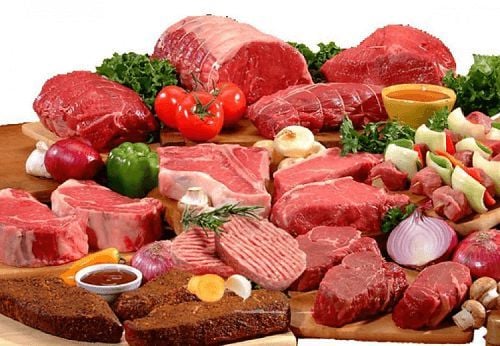
Thịt gia cầm và thịt thú rừng là một phần quan trọng của chế độ ăn uống lành mạnh và cân bằng
Please dial HOTLINE for more information or register for an appointment HERE. Download MyVinmec app to make appointments faster and to manage your bookings easily.
Reference source: nutrition.org.uk



